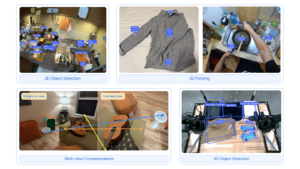Advancements in Mind Evolution: Enhancing Large Language Models for Real-World Solutions

The Rise of Artificial Intelligence and Language Models
Artificial intelligence (AI) has significantly advanced in recent years, serving as a valuable tool for innovation across various sectors. A key player in this evolution is large language models (LLMs), which are adept at understanding and generating human language. These models excel at applications such as conversational AI and content creation; however, they often face challenges when tasked with complex real-world problems requiring structured reasoning and meticulous planning.
Limitations of Large Language Models
LLMs are primarily trained to predict the next word in a sequence by analyzing extensive textual datasets, including books, articles, and social media content. This training helps them generate responses that sound coherent and relevant. Despite this ability, LLMs are limited in their capacity to comprehend deeper meanings and connections.
Key Issues in Reasoning and Planning
Pattern Recognition Over Logic: LLMs excel at recognizing patterns but struggle with logical reasoning. For example, while they can suggest flight schedules or hotel options individually, integrating these suggestions into a comprehensive travel plan is challenging.
- Loss of Context: During extended interactions, LLMs often lose track of previous dialogues. This inability to maintain context can lead to fragmented or inconsistent responses, especially when managing complex tasks that require keeping multiple variables in mind.
Introducing Mind Evolution
To tackle the limitations faced by LLMs, DeepMind has developed a novel approach known as Mind Evolution. This method draws inspiration from the principles of natural selection, refining problem-solving strategies through iterative adaptation.
How Mind Evolution Operates
Mind Evolution enhances the capacity of LLMs to manage complex requests by following a structured framework that encompasses several steps:
Generation: The LLM generates multiple responses to a given challenge. For instance, in planning a trip, it creates various itineraries based on factors like budget, preferences, and travel time.
Evaluation: Each generated solution is assessed using a fitness function—this measures how well it meets the specific requirements of the task. Poorly performing options are discarded, while the most promising candidates move forward in the process.
Refinement: A unique dual-persona system within the LLM facilitates a dialogue between an "Author," who proposes ideas, and a "Critic," who identifies shortcomings and offers feedback. This iterative process closely resembles how human teams refine concepts through discussion and critique.
- Iterative Optimization: The refined solutions undergo further evaluation and integration, creating enhanced responses over multiple iterations.
Real-World Applications of Mind Evolution
DeepMind has successfully tested Mind Evolution on complex benchmarks like TravelPlanner and Natural Plan. The results were striking, with Google’s Gemini achieving a success rate of 95.2% on TravelPlanner, a considerable jump from a baseline of just 5.6%. Furthermore, with improvements in the Gemini Pro version, success rates climbed to nearly 99.9%.
The performance of the Mind Evolution approach shows a remarkable capacity to handle increased complexity in tasks, proving especially effective in multi-day travel itineraries.
Challenges Ahead
Despite its effectiveness, Mind Evolution faces several challenges. The need for substantial computational resources is one obstacle, as the iterative nature of the process can demand significant processing power. For example, utilizing Mind Evolution for a TravelPlanner task consumed around three million tokens and 167 API calls, which is much higher than traditional methods. However, it is still more efficient than exhaustive search methods.
Moreover, defining effective fitness functions for specific tasks can be complex. Future research may aim to optimize the approach for greater computational efficiency and expand its applicability to diverse situations like creative writing or complex decision-making processes.
Broader Applications
While Mind Evolution has been primarily assessed in planning contexts, its potential spans various domains, including creative writing, scientific research, and even software development. For instance, researchers have introduced challenges like StegPoet, where the model must encode hidden messages within poetry. Mind Evolution surpasses traditional approaches in this task, achieving success rates of up to 79.2%.
The adaptability and evolving nature of solutions in natural language present exciting opportunities for addressing non-formalized problems, such as enhancing business workflows or generating innovative product designs. By employing evolutionary algorithms, Mind Evolution offers a flexible framework to expand the problem-solving capabilities of LLMs.
In summary, DeepMind’s Mind Evolution represents a significant advancement in overcoming the traditional limitations of LLMs and highlights the potential of AI in tackling multi-faceted real-world problems.






